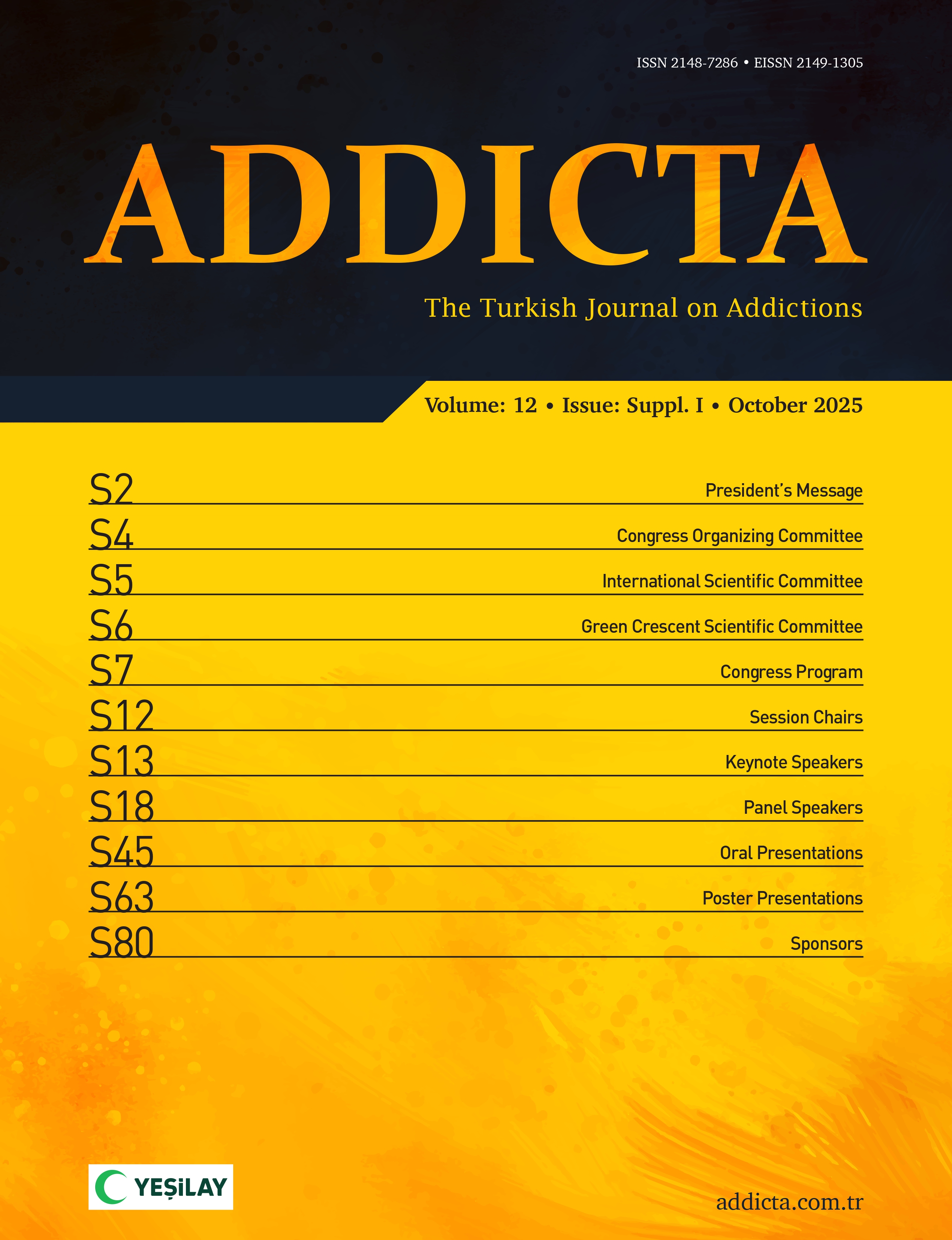In this study, we aimed to investigate the relationship between psychological flexibility and impulsivity levels with nicotine addiction levels, in university students who are addicted to cigarettes. The population of the study consisted of 546 undergraduate students, including 294 non-smokers and 252 smokers, who were addicted to tobacco according to the Diagnostic and Statistical Manual of Mental Disorders 5th edition (DSM-5) diagnostic criteria and who were studying at the Hamidiye Health Sciences University. The Psychological Flexibility Scale (PFS) and Barratt Impulsivity Scale (BIS) were applied to students who were smokers and non-smokers; and in addition, the Fagerström Nicotine Dependence Test (FNDT) was applied to the smokers. The students with nicotine dependence were compared with the non-addicted group; and values (32.4±8.0 vs. 54.5±11.3; p<0.001), presentability (20.8±6.0 vs. 33.7±6.4; p<0.001), acceptance (13.7±4.1 vs. 26.3±4.1; p<0.001), contextual self (8.6 ± 2.8 vs. 13.2±4.3; p<0.001), disintegration (8.9±2.9 vs. 12.7±4.2; p<0.001) subscale scores, and PFS total score (84.7±15.8 vs. 140.6±21.4; p<0.001) were found to be significantly lower; whereas attention impulsivity (19.5±4.2 vs. 15.5±3.2; p<0.001), motor impulsivity (26.4±5.4 vs.18.3±3.9; p<0.001), and the non-planning (30.4±3.1 vs. 17.0±2.1; p<0.001) subscales scores of BIS and BIS total score (76.3±11.0 vs. 52.5±7.4, p<0.001) were found to be significantly higher. In addition, a significant positive relationship was found between the FNDT scores of the participants in the smoking group and the BIS subscale with total scores (r=0.330, p<0.001; r=0.2.77, p<0.001; r=0.222, p<0.001; r=0.330, p<0.001; respectively). Psychological flexibility and impulsivity have a say in the development or continuation of addiction and are critical in the fight against addiction.
Cite this article as: Söğütlü, L., Şifa, Göktaş, S. (2021). Relationship among smoking addiction, psychological flexibility, and impulsivity in university students. Addicta: The Turkish Journal on Addictions, 8(1), 16-22.

.png)

.png)
.png)
